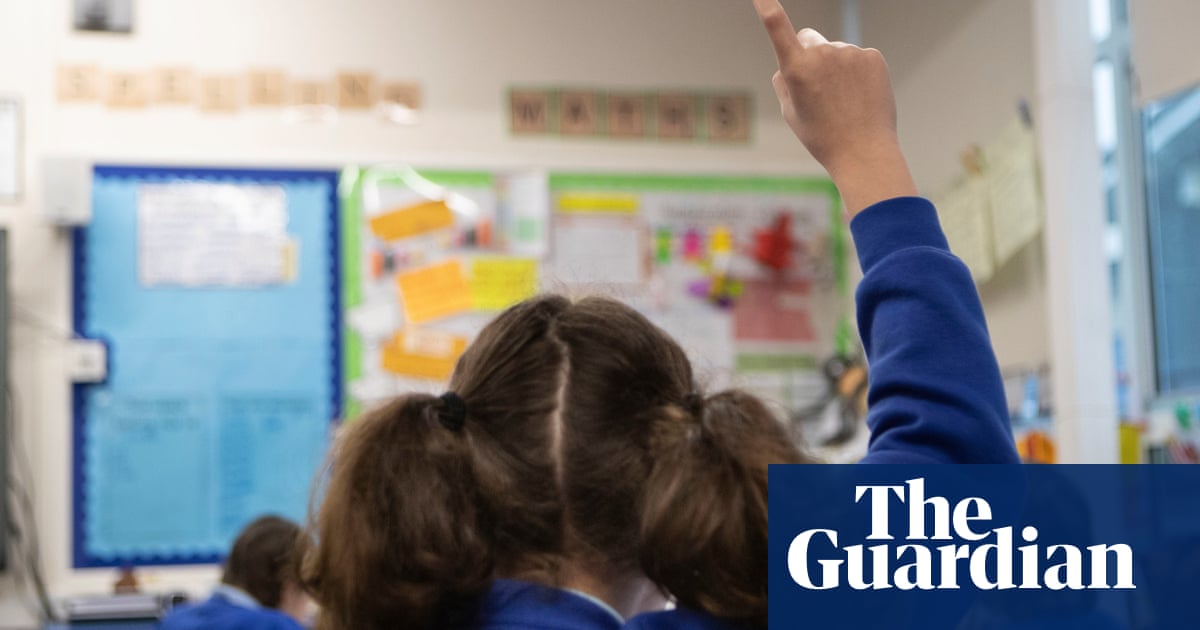


School leaders have accused the government of using children as “a political football” over its proposals to restrict sex education lessons by age in England.
The guidance, to be announced on Thursday, would outline what topics could be taught to specific age groups, as well as allowing parents access to teaching materials used and further restrict how teachers address gender and sexuality, including transgender and non-binary status, after pressure from Conservative MPs.
Pepe Di’Iasio, the general secretary of the Association of School and College Leaders, told the BBC’s Today programme: “Pupils are being placed in the middle of a highly sensitive subject and being used as a political football for the sake of headlines when we should be focusing on their wellbeing.”
Gillian Keegan, the education secretary, is expected to propose that primary schools will be barred from sex education and relationship lessons for pupils below year 5, when children are nine years old.
The revised guidance will also restrict “explicit” discussions of important topics such as contraception and sexual violence until children are in year 9, the third year of secondary school when most pupils are aged 13.
Di’Iasio added: “We do not think the government has handled the important matter of the teaching of sex education with the care it deserves. It has not consulted with school leaders and we have not seen the guidance that is planned other than through leaked reports to the media.”
According to a memo circulated to cabinet members, reported by the Sun, the guidance will be make clear that gender identity “is a contested subject that should not be taught”.
Currently, relationships, sex and health education (RSHE) is a mandatory subject to be taught in all secondary schools in England, while relationships education has also been compulsory for primary schools since September 2020.
Under the revisions, primary schools would be limited to teaching “basic facts” of conception and birth, and expected to focus on the importance of families, friendships and ensuring that relationships are “respectful”, including discussion of damaging stereotypes and roles, as well as warning of the dangers of social media and online relationships.
The current guidance allows primary schools to decide whether they need to cover any aspect of sex education, based on the needs of their pupils rather than by age.
after newsletter promotion
A Whitehall source said: “Most schools are doing a great job [teaching sex and relationship education], however, there have been many concerning reports, and these limits are based on advice from an expert panel.”
The revisions have been under discussion within the government since March 2023, when Rishi Sunak promised to bring forward new guidance. That followed more than 50 Conservative MPs lobbying the prime minister with claims that children were being “indoctrinated with radical and unevidenced ideologies” about sex and gender.
Chris Philp, the policing minister, said the guidance would be “quickly” put in place. “I don’t want my children, to be honest, to be exposed to inappropriate content at a pretty young age, and nor do I want politically contested ideas like the trans issues being taught as if they are facts,” he told GB News on Wednesday.